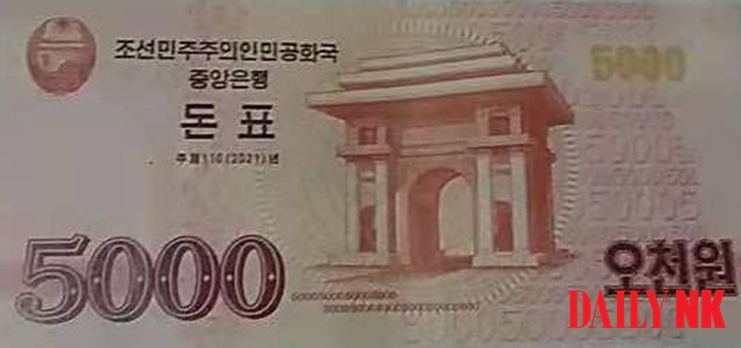Though North Korean authorities recently issued “foreign currency vouchers” to bolster state finances, they have yet to put them into full-scale circulation. The authorities reportedly will decide how widely to use them after trial operations at select foreign exchange shops, but relevant preparations to put them into wider use seem wanting.
Multiple Daily NK sources in North Korea recently said customers at foreign exchange shops and department stores in Pyongyang and other major cities now pay using the vouchers.
However, the authorities have issued no official information regarding how to use or exchange the coupons.
To pay using foreign currency in North Korea department stores or shops, you first change your foreign currency into the coupons at temporary windows and then make the final payment using the vouchers.
However, consumers are reacting negatively to the shops’ demands that they change their foreign currency into the vouchers.
They find the demand perplexing. “We could just pay using our foreign currency,” they say. “Why should we have to change it into coupons?”
Shop employees are trying to convince customers to use the vouchers. We are not telling you to hold on to the cash coupons, they assure them, but rather use them immediately to pay after changing your cash. “It might be a bit of pain, but worry not and pay using the vouchers,” they say.
North Korean authorities are avoiding dramatic policies such as forcing people to use the coupons or banning the use of foreign currency, apparently concerned that such measures would spark resistance or ill side-effects when North Koreans have little faith in the local currency due to past currency reforms.

The authorities are likely trying to get locals to voluntarily use the vouchers, convincing them that they are a safe means of payment.
The bigger problem, however, is that an insufficient number of coupons were issued for the trial program.
A source in Pyongyang said he was told to use the vouchers at a department store, so he went to a designated spot next to a foreign exchange shop to change his money. However, the employee at the spot said they did not have enough coupons, and simply stamped a slip of paper to show he had changed his money.
In the end, he bought what he wanted using not a cash coupon, but a piece of paper with a stamp showing he had paid.
Meanwhile, North Korean authorities are reportedly offering favorable exchange rates to encourage people to use the vouchers, changing them for slightly better-than-market rates against the dollar.
For example, the current market rate is KPW 5,000 to the dollar. But if you exchange USD 100 to cash coupons, you get KPW 505,000.
However, not all currency exchanges nationwide are uniformly using these favorable rates.
It appears the favorable rates were temporarily employed in some regions to encourage locals to use the coupons.
In principle, North Korean authorities have authorized state money changers and certain exchange centers – called “changed money shops” – in foreign exchange shops or department stores to issue the cash coupons. However, the sources say nobody is voluntarily changing their foreign exchange for vouchers unless they are immediately purchasing goods using foreign currency.
A source said he understood that the country’s central bank is holding continuous discussions with the Central Committee over detailed rules regarding the cash coupons. He further claimed with most locals having little faith or interest in state-issued vouchers, it will not be easy to put them into broader circulation.
Please direct any comments or questions about this article to dailynkenglish@uni-media.net.

















